![Mother of boy healed through intercession of Fulton Sheen celebrates his upcoming beatification #Catholic Bonnie Engstrom, the mother of the child who was healed through Archbishop J. Fulton Sheen’s intercession, said she “laughed out loud with joy” when she heard his beatification was going to move forward.On Feb. 9, the Holy See officially informed Bishop Louis Tylka of the Diocese of Peoria, Illinois, that the cause for the Venerable Servant of God Archbishop Fulton J. Sheen can proceed to beatification. He is credited for the miracle that saved the life of Engstrom’s son James Fulton Engstrom, who was named after Sheen.“We had started getting to know Fulton Sheen and growing in our devotion to him while I was pregnant with James,” Engstrom said in a Feb. 13 interview with “EWTN News In Depth.” “During that pregnancy we had decided to name our son after him … to really put him under his patronage.”On Sept. 16, 2010, James was born at home. It had been a healthy pregnancy, and it was a healthy labor, but there was a knot in James’ umbilical cord that tightened during birth. “He was a stillborn, there was absolutely no sign of life,” Engstrom said.In the “time of crisis, I was in a state of shock,” she said. “I didn’t really know what to do, but I remember calling on Fulton Sheen, just saying his name, ‘Fulton Sheen, Fulton Sheen, Fulton Sheen.’”“While [James] was at home, while he was in the ambulance, and while he was at the hospital in the emergency room, he did not have a pulse for that entire time,” she said. “Right as the medical team was ready to call time of death, all hands were off. And at that moment, his heart started to beat again, and it never stopped after that.”James is a freshman in high school and doing “great,” Engstrom said. “He is doing really well. He loves music. He’s in an art class that he’s really enjoying … he’s a great kid. Hardworking, funny.”While James “has had some medical issues along the way,” there is nothing the family can attribute to his health issues at birth.Engstrom said that her son’s “initial MRI, the first 24 hours of his life, showed extensive brain damage, and the follow-up one was perfectly clear.”Sheen’s beatificationSheen’s cause for canonization was first opened in 2002 under the leadership of the Diocese of Peoria, Sheen’s birthplace, and from then on he was referred to as a servant of God. Pope Benedict XVI declared him venerable in June 2012.On March 6, 2014, the board of medical experts who advise the then-Congregation for the Causes of Saints unanimously approved the reported miracle of James. Pope Francis approved of the miracle of Sheen’s on July 5, 2019, and the beatification experienced numerous delays due to an ownership dispute of his remains and an investigation into clergy sex abuse in New York.While obstacles were eventually cleared, Engstrom said initially her family was “frustrated” and “disappointed” with the delays. “I think as things in the Church just continue to progress and time went by, we realized, we trust in Jesus and he’s got it in control. And so we were able to really lean into that and move past the initial disappointment,” she said.The family is “so excited,” Engstrom said. "We’re so happy about it.” “We really appreciate that in all of Church history, our family has a little footnote in it in a very special way, and it’s remarkable. It is such an honor, and it’s such a joyful thing,” she said. Mother of boy healed through intercession of Fulton Sheen celebrates his upcoming beatification #Catholic Bonnie Engstrom, the mother of the child who was healed through Archbishop J. Fulton Sheen’s intercession, said she “laughed out loud with joy” when she heard his beatification was going to move forward.On Feb. 9, the Holy See officially informed Bishop Louis Tylka of the Diocese of Peoria, Illinois, that the cause for the Venerable Servant of God Archbishop Fulton J. Sheen can proceed to beatification. He is credited for the miracle that saved the life of Engstrom’s son James Fulton Engstrom, who was named after Sheen.“We had started getting to know Fulton Sheen and growing in our devotion to him while I was pregnant with James,” Engstrom said in a Feb. 13 interview with “EWTN News In Depth.” “During that pregnancy we had decided to name our son after him … to really put him under his patronage.”On Sept. 16, 2010, James was born at home. It had been a healthy pregnancy, and it was a healthy labor, but there was a knot in James’ umbilical cord that tightened during birth. “He was a stillborn, there was absolutely no sign of life,” Engstrom said.In the “time of crisis, I was in a state of shock,” she said. “I didn’t really know what to do, but I remember calling on Fulton Sheen, just saying his name, ‘Fulton Sheen, Fulton Sheen, Fulton Sheen.’”“While [James] was at home, while he was in the ambulance, and while he was at the hospital in the emergency room, he did not have a pulse for that entire time,” she said. “Right as the medical team was ready to call time of death, all hands were off. And at that moment, his heart started to beat again, and it never stopped after that.”James is a freshman in high school and doing “great,” Engstrom said. “He is doing really well. He loves music. He’s in an art class that he’s really enjoying … he’s a great kid. Hardworking, funny.”While James “has had some medical issues along the way,” there is nothing the family can attribute to his health issues at birth.Engstrom said that her son’s “initial MRI, the first 24 hours of his life, showed extensive brain damage, and the follow-up one was perfectly clear.”Sheen’s beatificationSheen’s cause for canonization was first opened in 2002 under the leadership of the Diocese of Peoria, Sheen’s birthplace, and from then on he was referred to as a servant of God. Pope Benedict XVI declared him venerable in June 2012.On March 6, 2014, the board of medical experts who advise the then-Congregation for the Causes of Saints unanimously approved the reported miracle of James. Pope Francis approved of the miracle of Sheen’s on July 5, 2019, and the beatification experienced numerous delays due to an ownership dispute of his remains and an investigation into clergy sex abuse in New York.While obstacles were eventually cleared, Engstrom said initially her family was “frustrated” and “disappointed” with the delays. “I think as things in the Church just continue to progress and time went by, we realized, we trust in Jesus and he’s got it in control. And so we were able to really lean into that and move past the initial disappointment,” she said.The family is “so excited,” Engstrom said. "We’re so happy about it.” “We really appreciate that in all of Church history, our family has a little footnote in it in a very special way, and it’s remarkable. It is such an honor, and it’s such a joyful thing,” she said.](https://unitedyam.com/wp-content/uploads/2026/02/mother-of-boy-healed-through-intercession-of-fulton-sheen-celebrates-his-upcoming-beatification-catholic-bonnie-engstrom-the-mother-of-the-child-who-was-healed-through-archbishop-j-fulton-sheen.png)
Bonnie Engstrom, the mother of boy healed through the intercession of Fulton Sheen, provides an update on her son following the announcement of the archbishop’s upcoming beatification.
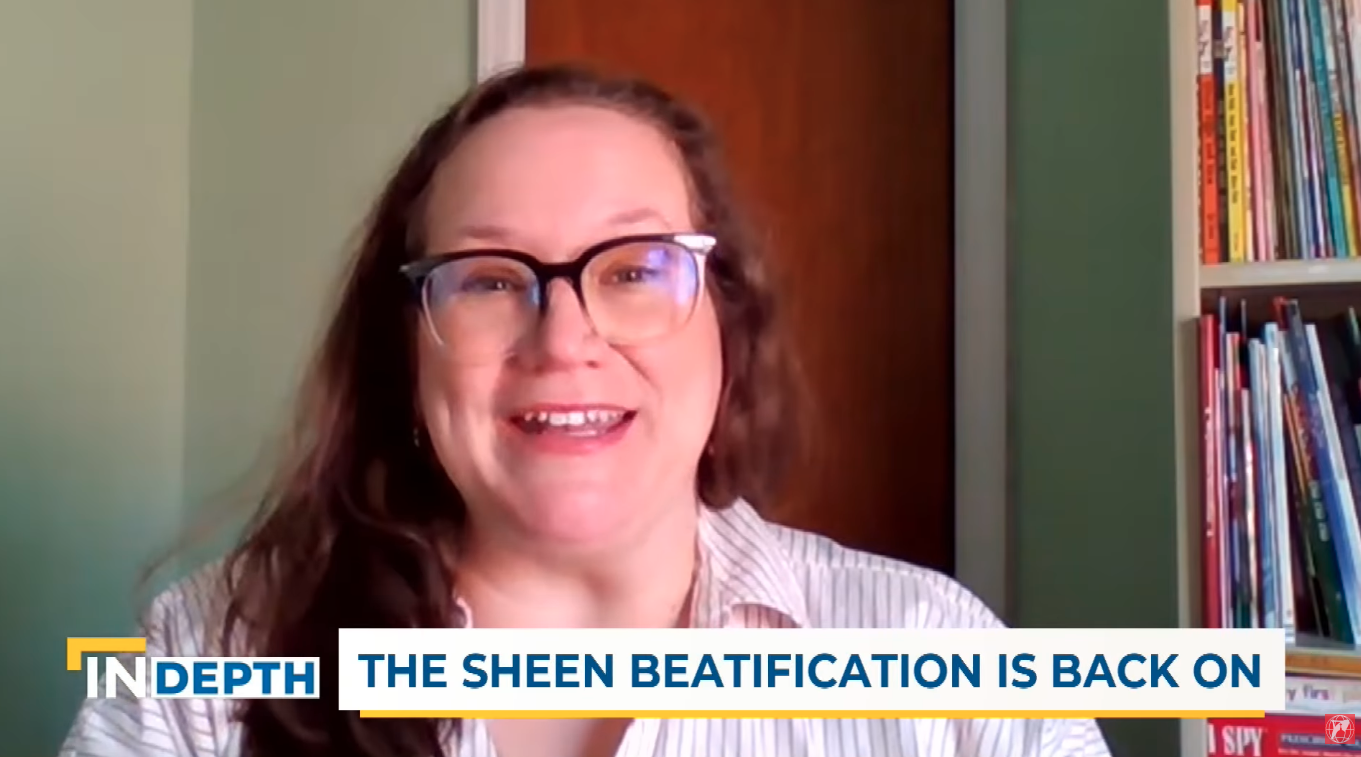
![Mother of boy healed through intercession of Fulton Sheen celebrates his upcoming beatification #Catholic Bonnie Engstrom, the mother of the child who was healed through Archbishop J. Fulton Sheen’s intercession, said she “laughed out loud with joy” when she heard his beatification was going to move forward.On Feb. 9, the Holy See officially informed Bishop Louis Tylka of the Diocese of Peoria, Illinois, that the cause for the Venerable Servant of God Archbishop Fulton J. Sheen can proceed to beatification. He is credited for the miracle that saved the life of Engstrom’s son James Fulton Engstrom, who was named after Sheen.“We had started getting to know Fulton Sheen and growing in our devotion to him while I was pregnant with James,” Engstrom said in a Feb. 13 interview with “EWTN News In Depth.” “During that pregnancy we had decided to name our son after him … to really put him under his patronage.”On Sept. 16, 2010, James was born at home. It had been a healthy pregnancy, and it was a healthy labor, but there was a knot in James’ umbilical cord that tightened during birth. “He was a stillborn, there was absolutely no sign of life,” Engstrom said.In the “time of crisis, I was in a state of shock,” she said. “I didn’t really know what to do, but I remember calling on Fulton Sheen, just saying his name, ‘Fulton Sheen, Fulton Sheen, Fulton Sheen.’”“While [James] was at home, while he was in the ambulance, and while he was at the hospital in the emergency room, he did not have a pulse for that entire time,” she said. “Right as the medical team was ready to call time of death, all hands were off. And at that moment, his heart started to beat again, and it never stopped after that.”James is a freshman in high school and doing “great,” Engstrom said. “He is doing really well. He loves music. He’s in an art class that he’s really enjoying … he’s a great kid. Hardworking, funny.”While James “has had some medical issues along the way,” there is nothing the family can attribute to his health issues at birth.Engstrom said that her son’s “initial MRI, the first 24 hours of his life, showed extensive brain damage, and the follow-up one was perfectly clear.”Sheen’s beatificationSheen’s cause for canonization was first opened in 2002 under the leadership of the Diocese of Peoria, Sheen’s birthplace, and from then on he was referred to as a servant of God. Pope Benedict XVI declared him venerable in June 2012.On March 6, 2014, the board of medical experts who advise the then-Congregation for the Causes of Saints unanimously approved the reported miracle of James. Pope Francis approved of the miracle of Sheen’s on July 5, 2019, and the beatification experienced numerous delays due to an ownership dispute of his remains and an investigation into clergy sex abuse in New York.While obstacles were eventually cleared, Engstrom said initially her family was “frustrated” and “disappointed” with the delays. “I think as things in the Church just continue to progress and time went by, we realized, we trust in Jesus and he’s got it in control. And so we were able to really lean into that and move past the initial disappointment,” she said.The family is “so excited,” Engstrom said. "We’re so happy about it.” “We really appreciate that in all of Church history, our family has a little footnote in it in a very special way, and it’s remarkable. It is such an honor, and it’s such a joyful thing,” she said. Mother of boy healed through intercession of Fulton Sheen celebrates his upcoming beatification #Catholic Bonnie Engstrom, the mother of the child who was healed through Archbishop J. Fulton Sheen’s intercession, said she “laughed out loud with joy” when she heard his beatification was going to move forward.On Feb. 9, the Holy See officially informed Bishop Louis Tylka of the Diocese of Peoria, Illinois, that the cause for the Venerable Servant of God Archbishop Fulton J. Sheen can proceed to beatification. He is credited for the miracle that saved the life of Engstrom’s son James Fulton Engstrom, who was named after Sheen.“We had started getting to know Fulton Sheen and growing in our devotion to him while I was pregnant with James,” Engstrom said in a Feb. 13 interview with “EWTN News In Depth.” “During that pregnancy we had decided to name our son after him … to really put him under his patronage.”On Sept. 16, 2010, James was born at home. It had been a healthy pregnancy, and it was a healthy labor, but there was a knot in James’ umbilical cord that tightened during birth. “He was a stillborn, there was absolutely no sign of life,” Engstrom said.In the “time of crisis, I was in a state of shock,” she said. “I didn’t really know what to do, but I remember calling on Fulton Sheen, just saying his name, ‘Fulton Sheen, Fulton Sheen, Fulton Sheen.’”“While [James] was at home, while he was in the ambulance, and while he was at the hospital in the emergency room, he did not have a pulse for that entire time,” she said. “Right as the medical team was ready to call time of death, all hands were off. And at that moment, his heart started to beat again, and it never stopped after that.”James is a freshman in high school and doing “great,” Engstrom said. “He is doing really well. He loves music. He’s in an art class that he’s really enjoying … he’s a great kid. Hardworking, funny.”While James “has had some medical issues along the way,” there is nothing the family can attribute to his health issues at birth.Engstrom said that her son’s “initial MRI, the first 24 hours of his life, showed extensive brain damage, and the follow-up one was perfectly clear.”Sheen’s beatificationSheen’s cause for canonization was first opened in 2002 under the leadership of the Diocese of Peoria, Sheen’s birthplace, and from then on he was referred to as a servant of God. Pope Benedict XVI declared him venerable in June 2012.On March 6, 2014, the board of medical experts who advise the then-Congregation for the Causes of Saints unanimously approved the reported miracle of James. Pope Francis approved of the miracle of Sheen’s on July 5, 2019, and the beatification experienced numerous delays due to an ownership dispute of his remains and an investigation into clergy sex abuse in New York.While obstacles were eventually cleared, Engstrom said initially her family was “frustrated” and “disappointed” with the delays. “I think as things in the Church just continue to progress and time went by, we realized, we trust in Jesus and he’s got it in control. And so we were able to really lean into that and move past the initial disappointment,” she said.The family is “so excited,” Engstrom said. "We’re so happy about it.” “We really appreciate that in all of Church history, our family has a little footnote in it in a very special way, and it’s remarkable. It is such an honor, and it’s such a joyful thing,” she said.](https://unitedyam.com/wp-content/uploads/2026/02/mother-of-boy-healed-through-intercession-of-fulton-sheen-celebrates-his-upcoming-beatification-catholic-bonnie-engstrom-the-mother-of-the-child-who-was-healed-through-archbishop-j-fulton-sheen.png)
Bonnie Engstrom, the mother of boy healed through the intercession of Fulton Sheen, provides an update on her son following the announcement of the archbishop’s upcoming beatification.

![Puerto Rico’s penal code recognizes unborn babies as human beings #Catholic Puerto Rico Gov. Jenniffer González signed into law on Feb. 12 a bill amending the penal code to recognize unborn babies as human beings at “any stage of gestation.”Senate Bill 923 — which when signed became Law 18-2026 — amends Article 92 of the penal code, which currently states that “murder is the intentional, knowing, or reckless killing of a human being.”The new law establishes that “for the purposes of this chapter, ‘human being’ shall include any conceived [unborn child] at any stage of gestation within the mother’s womb.”This legislation was authored by González, a Republican. In a press release posted on X, she explained that the objective is to complement Law 166-2025, known as the Keyshla Madlane Law, named after a pregnant woman in Puerto Rico who was murdered in April 2021.This law, the press release states, “among other things, defines as first-degree murder the intentional and knowing killing of a pregnant woman, resulting in the death of the unborn child at any stage of gestation within the mother’s womb.”In this regard, the approval of Law 18-2026 stands out, noting that “the legislation aims to maintain consistency between civil and criminal provisions by recognizing the conceived unborn child as a human being.”In December 2025, the governor also signed into law Senate Bill 504, which amended the civil code to state that “a human being in gestation or nasciturus is a natural person, including the conceived child at any stage of gestation within the mother’s womb.”A natural person simply means a living human being as distinct from a legal person such as a corporation. At the time, all of these laws were criticized by feminist and pro-abortion groups, who argued that they could lead to a ban on abortion in Puerto Rico and other U.S. jurisdictions.However, Puerto Rico Sen. Joanne Rodríguez Veve defended the passage of Bill 923 in January, stating that “the message of this type of legislation is powerful. It reaffirms this kind of language in our public policy that in the womb of a pregnant woman there is not just anything, not a mere indefinable object, but a subject, a developing human being who has dignity and whose value is intrinsic to their human nature.”This story was first published by ACI Prensa, the Spanish-language sister service of EWTN News. It has been translated and adapted by EWTN News English. Puerto Rico’s penal code recognizes unborn babies as human beings #Catholic Puerto Rico Gov. Jenniffer González signed into law on Feb. 12 a bill amending the penal code to recognize unborn babies as human beings at “any stage of gestation.”Senate Bill 923 — which when signed became Law 18-2026 — amends Article 92 of the penal code, which currently states that “murder is the intentional, knowing, or reckless killing of a human being.”The new law establishes that “for the purposes of this chapter, ‘human being’ shall include any conceived [unborn child] at any stage of gestation within the mother’s womb.”This legislation was authored by González, a Republican. In a press release posted on X, she explained that the objective is to complement Law 166-2025, known as the Keyshla Madlane Law, named after a pregnant woman in Puerto Rico who was murdered in April 2021.This law, the press release states, “among other things, defines as first-degree murder the intentional and knowing killing of a pregnant woman, resulting in the death of the unborn child at any stage of gestation within the mother’s womb.”In this regard, the approval of Law 18-2026 stands out, noting that “the legislation aims to maintain consistency between civil and criminal provisions by recognizing the conceived unborn child as a human being.”In December 2025, the governor also signed into law Senate Bill 504, which amended the civil code to state that “a human being in gestation or nasciturus is a natural person, including the conceived child at any stage of gestation within the mother’s womb.”A natural person simply means a living human being as distinct from a legal person such as a corporation. At the time, all of these laws were criticized by feminist and pro-abortion groups, who argued that they could lead to a ban on abortion in Puerto Rico and other U.S. jurisdictions.However, Puerto Rico Sen. Joanne Rodríguez Veve defended the passage of Bill 923 in January, stating that “the message of this type of legislation is powerful. It reaffirms this kind of language in our public policy that in the womb of a pregnant woman there is not just anything, not a mere indefinable object, but a subject, a developing human being who has dignity and whose value is intrinsic to their human nature.”This story was first published by ACI Prensa, the Spanish-language sister service of EWTN News. It has been translated and adapted by EWTN News English.](https://unitedyam.com/wp-content/uploads/2026/02/puerto-ricos-penal-code-recognizes-unborn-babies-as-human-beings-catholic-puerto-rico-gov-jenniffer-gonzalez-signed-into-law-on-feb-12-a-bill-amending-the-penal-code-to-recognize-unborn-ba.jpg)
Puerto Rico Gov. Jenniffer González signed into law on Feb. 12 a bill amending the penal code to recognize unborn babies as human beings at “any stage of gestation.”
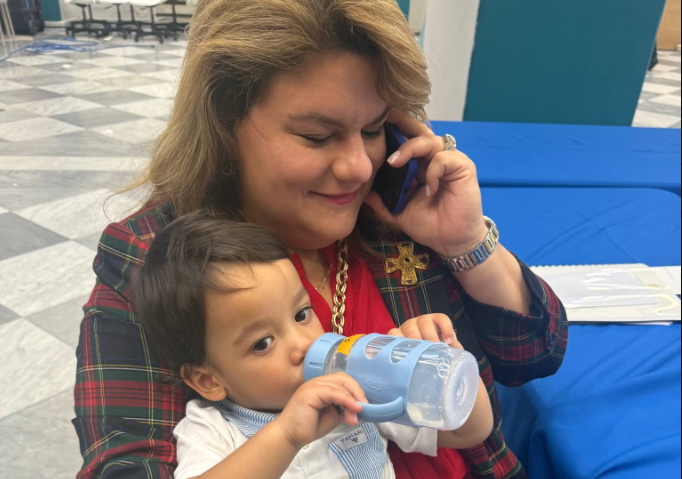
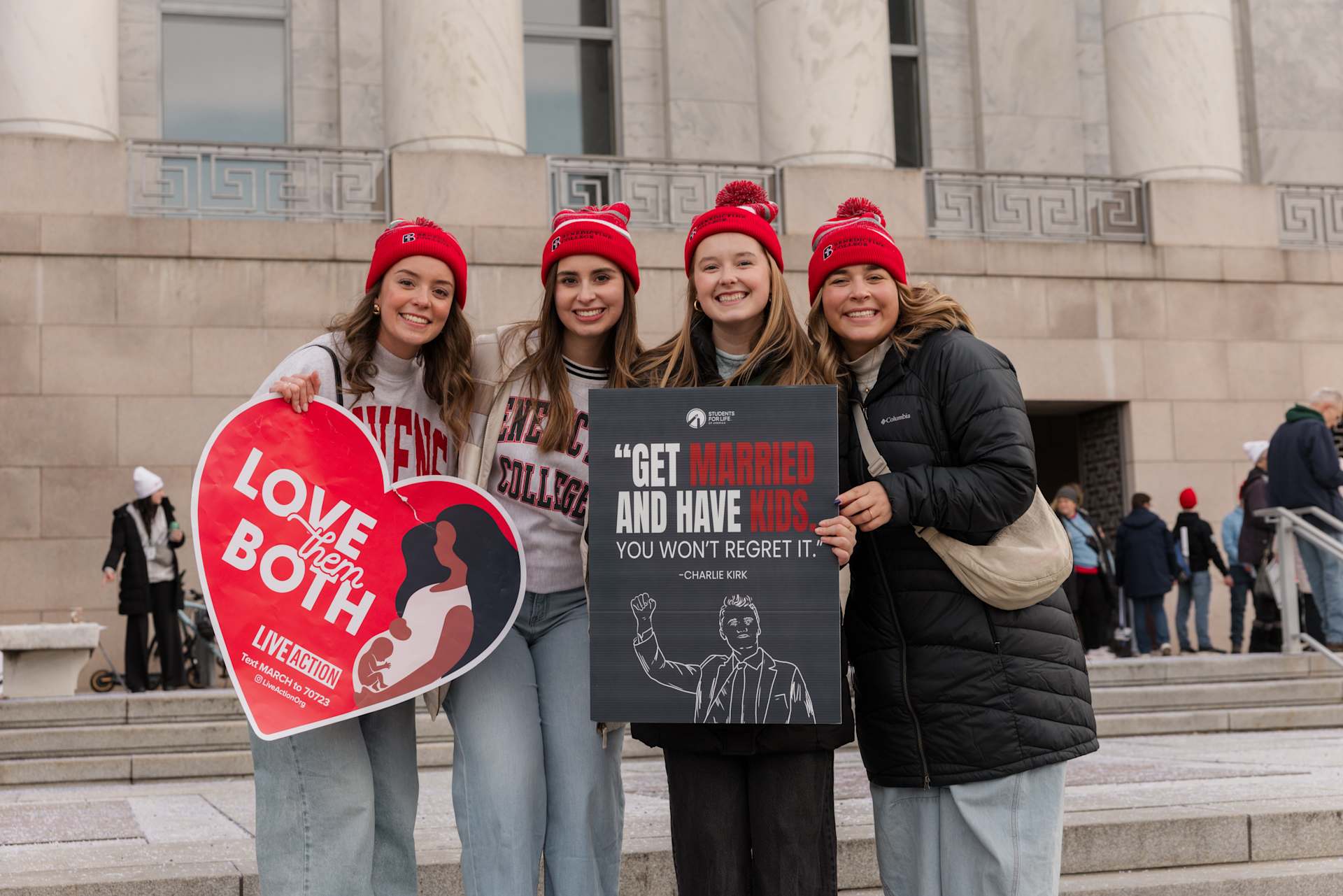
Some Catholic colleges ranked among the best for pro-life support for women, while others were among the worst for their ties to abortion clinics, according to a new report.
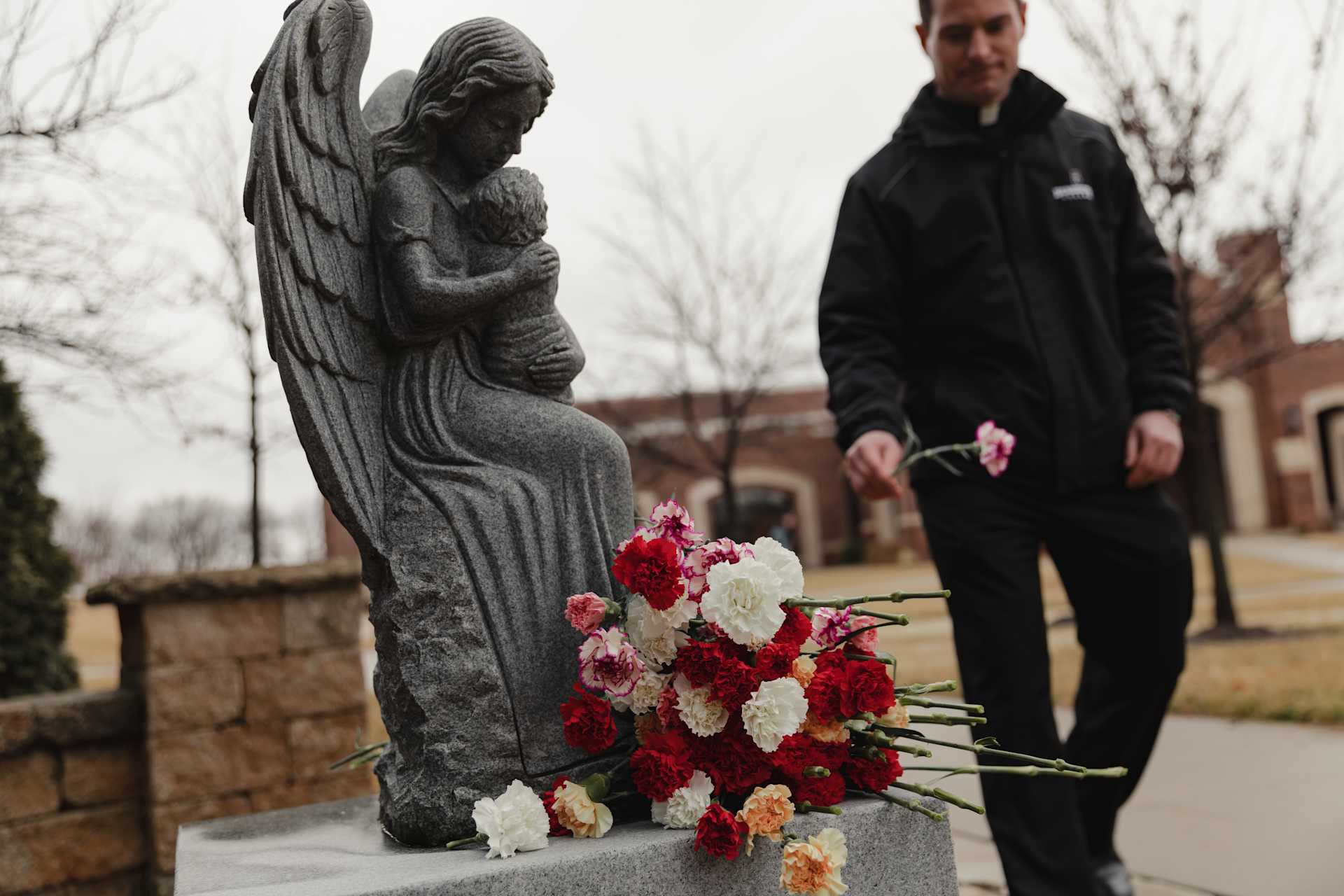
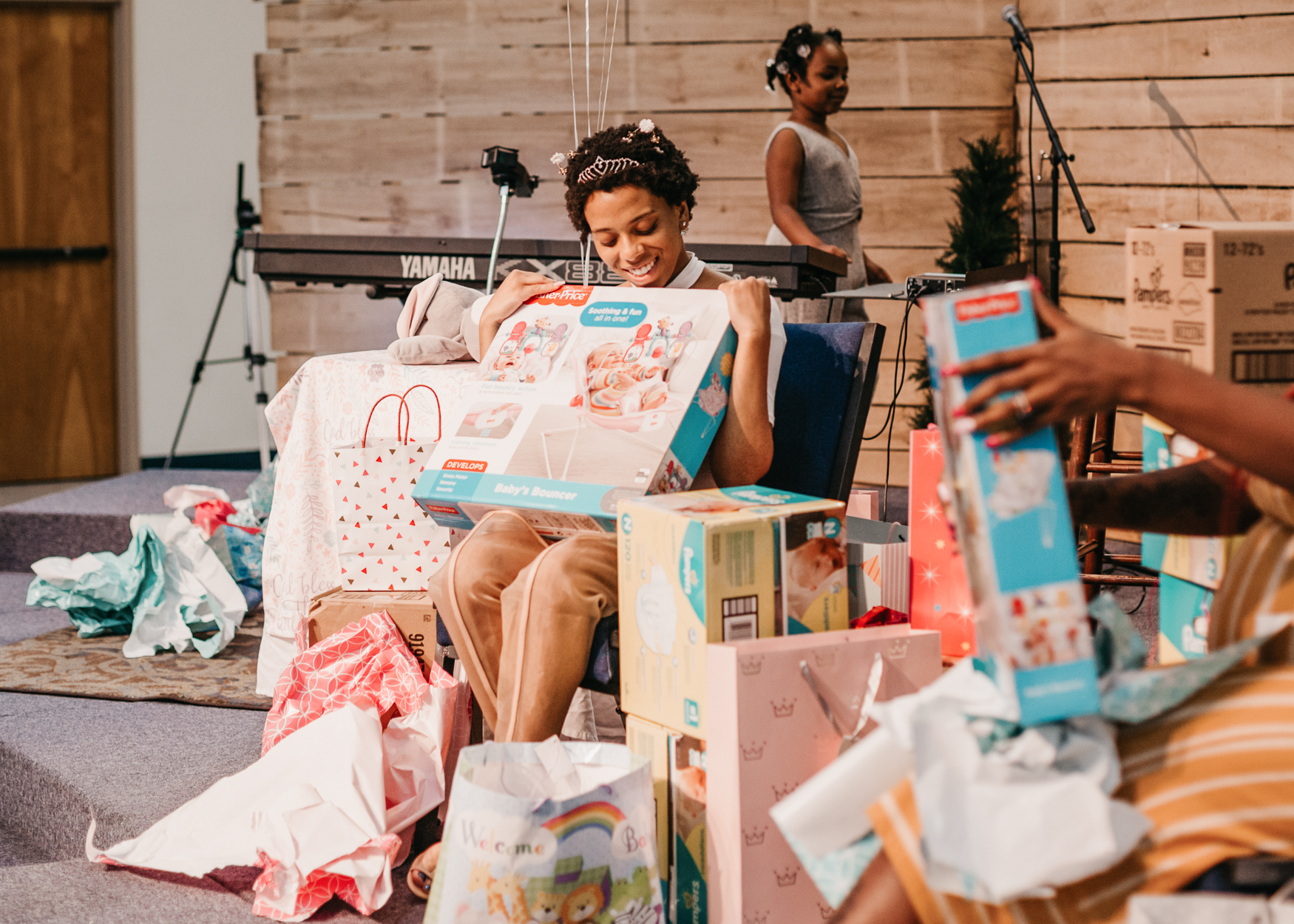

Jan 18, 2026 / 06:00 am (CNA).
Amy Ford was 19 years old when she found herself with an unplanned pregnancy. Scared and thinking her life and dreams were over, she attempted to get an abortion but was unable to go through with it.
Ford and the baby’s father turned to their church for support and received none. The experience led her to create Embrace Grace, a nonprofit that provides support and community through local churches for pregnant mothers in need.
Ford told EWTN News that she thought “my life was over, my dreams were over, that my parents were going to hate me.” She said she thought she would end up homeless.
“The father of the baby felt the same way and we just thought we could have an abortion and maybe that’s a quick fix and we’ll just deal with the consequences of a broken heart later. And even though we grew up knowing abortion was wrong, we just kind of went into this mode of trying not to feel anything,” Ford recalled.
So, she went to an abortion clinic. As the nurses explained what they were going to do during the procedure, Ford began to hyperventilate and passed out. She was told she was “too emotionally distraught” to make a decision and that she could go back to the abortion clinic another day.
As she walked into the waiting room, she told the baby’s father that she was still pregnant. At that moment, the two decided they would keep the child. The high school sweethearts knew they wanted to get married one day; they just didn’t expect to have a child before marriage.
The two went to an evangelical pastor whom they knew personally to ask him if he could marry them.
“He said, ‘No, I’m sorry, because you sinned I will not bless this marriage,’” Ford shared.
The couple found another pastor to marry them and got married when Ford was 16 weeks pregnant. They tried going back to their church after that but it was “the elephant in the room” — others changed how they interacted with them and they decided to stop attending church for a period of time.
Ford and her husband welcomed their son — who is now 27 years old and also works in the pro-life movement — and have been married for 27 years, welcoming three more children after their firstborn.
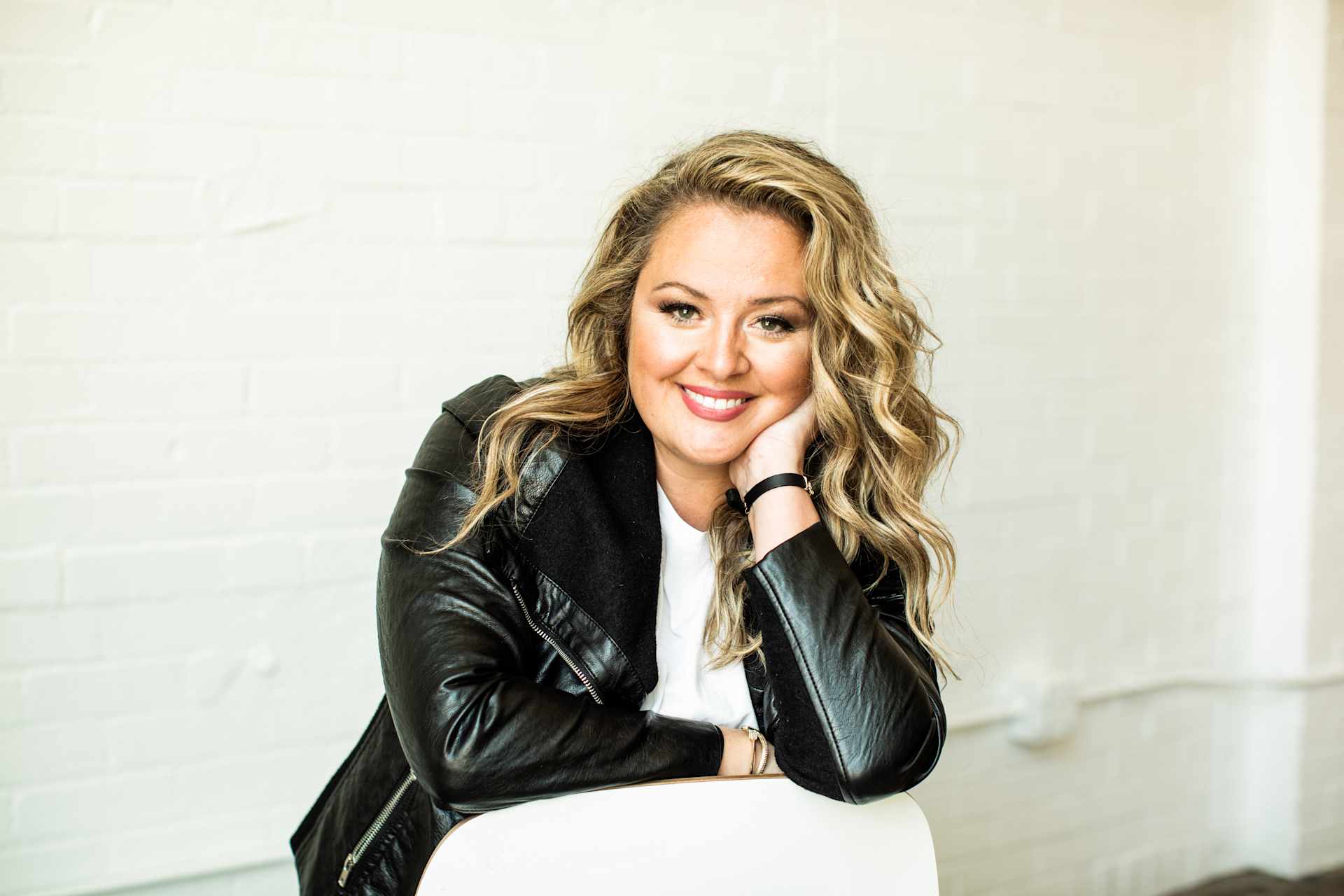
Looking back at her experience, Ford felt called to help women who found themselves in these situations, not sure where to go, and weren’t aware of the resources available to them. So she started a small group at her church for women who were experiencing an unexpected pregnancy.
Ford admitted that back then she didn’t know what a pregnancy center was or what the pro-life movement was.
“If someone would have said, ‘I work in the pro-life movement,’ I would have assumed that meant picketing because that’s the only thing the media shows,” she admitted. “I didn’t know what a pregnancy center was even when I started Embrace Grace, the group. I didn’t know anything about it. So, I never thought, ‘I’m starting a pro-life group.’ That wasn’t even on my mind. I just wanted to start a small group for women that have unexpected pregnancies.”
In 2008 Ford hosted her first group, which was made up of three women who met at a local church in the Dallas-Forth Worth area. After meeting for 12 weeks as a group, “they didn’t even seem like the same person by the end of it,” Ford recalled.
“They had completely transformed. They were empowered as women to be the moms that God created them to be.”
After the first group, Ford held another Embrace Grace session, and another and another. With each passing session, more and more young women were attending and slowly more and more churches were getting involved.
Today, Embrace Grace is in over 1,200 churches across the country — mostly in evangelical, Baptist, and Catholic churches.
A woman who joins an Embrace Grace group goes through a 12-week curriculum that aims to help her experience healing and remind her of who God made her to be as a daughter of God and a mother. Additionally, the church hosting the group throws each woman a baby shower.
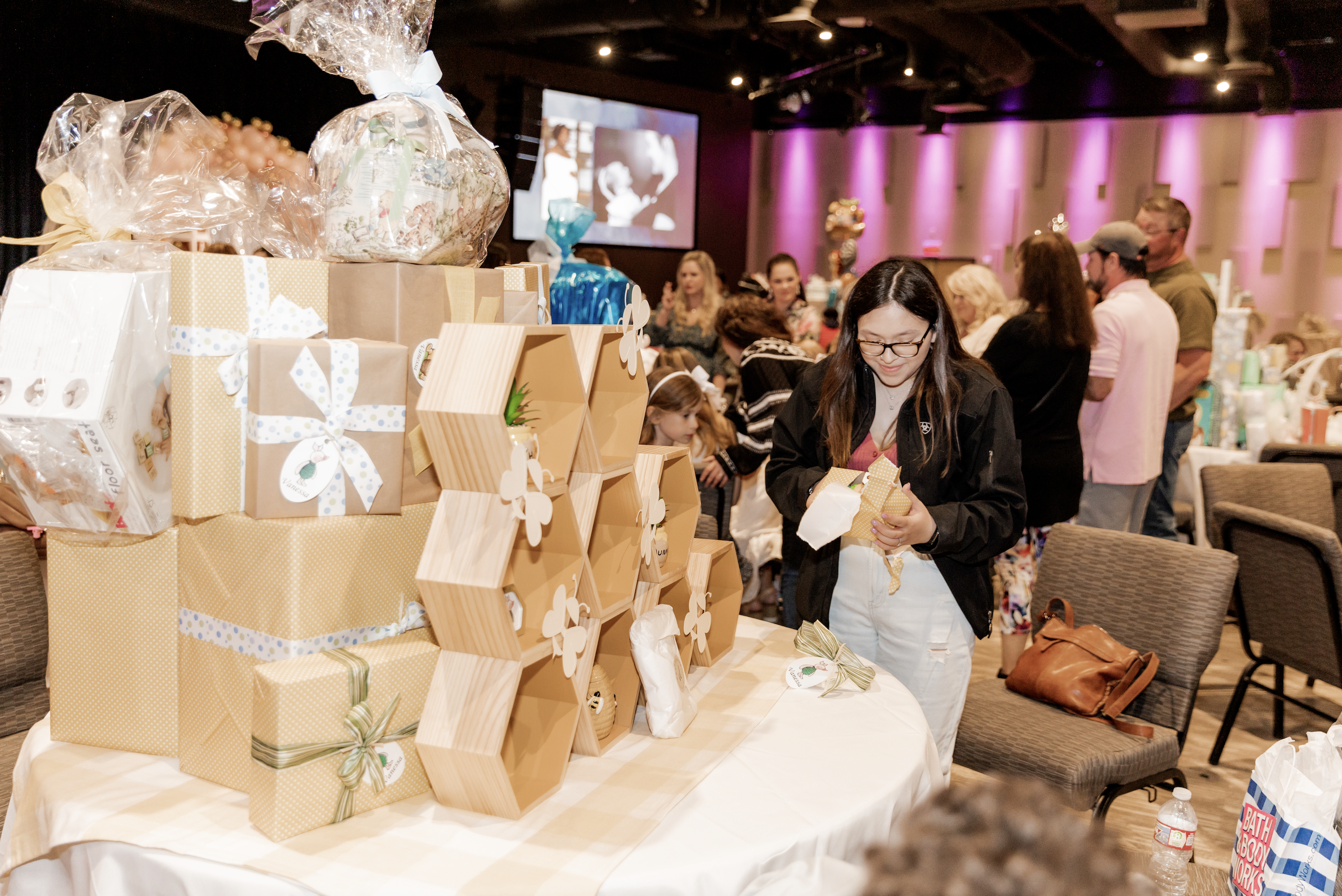
Embrace Grace also has two other programs: Embrace Life and Embrace Legacy.
Embrace Life is a 20-week program that teaches the women more practical skills in terms of parenting, the newborn phase and postpartum, how to manage finances, and more. Embrace Legacy is a 12-week program aimed at new or single fathers.
Ford hopes that Embrace Grace serves as a tool of “courage and the bridge to get them actually going to church and raising their kids in the church and being a part of a spiritual family.”
The nondenominational nonprofit also works in partnership with local pregnancy centers that are within a 30-mile radius of a church that hosts an Embrace Grace group by giving them what they call “Love Boxes” to give women who find out they are pregnant and are seeking support. The Love Box contains a onesie with the words “Best Gift Ever,” a book called “A Bump in Life” — which contains 20 testimonies from women who chose life — a journal, a handwritten letter encouraging a new mother, and an invitation to join the local Embrace Grace group.
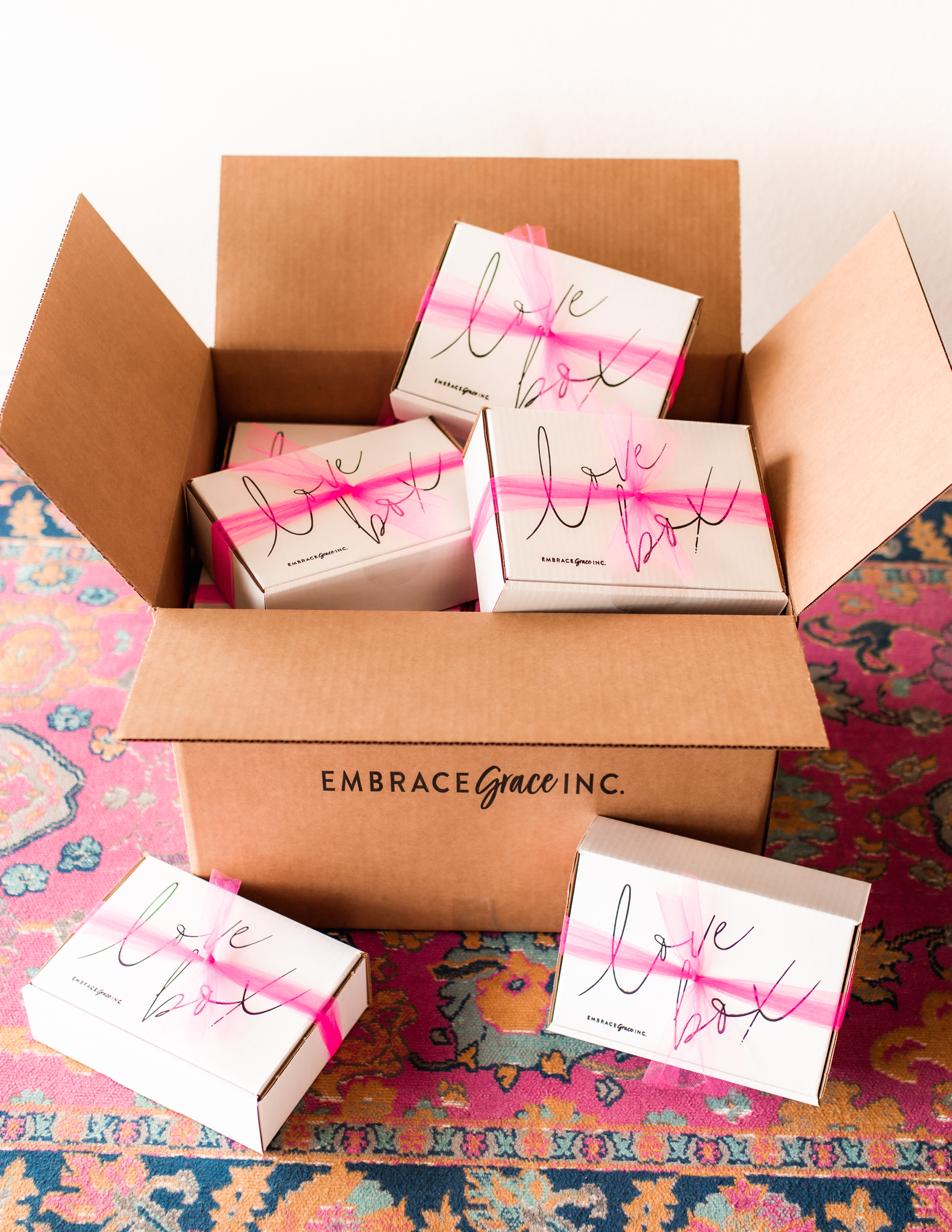
“Because most pregnancy centers have sonogram machines, that means they’re medical, which means they have HIPAA laws that they have to abide by. So, they can’t just give the church the girl’s name,” Ford explained. “So these Love Boxes are kind of a way, another touch, for the mom to find out more … and that there’s a church that wants to walk alongside you.”
Embrace Grace recently reached a milestone by giving out 150,000 Love Boxes since its launch in 2018.
Looking ahead, Ford’s goal is to be in 23,400 churches. If that number sounds specific, that’s because it is. By using different tools, Ford and her team concluded that if they want every woman who finds herself in an unplanned pregnancy to be able to turn to a church for support, Embrace Grace needs to be in “23,400 churches strategically placed around the United States … so that no mom would ever have to walk alone.”
“We are just putting it out there, trying to partner with as many churches as possible, so that we can make that happen,” she said. “That is our big dream. That that’s what the world would look like — that no mom would have to walk alone and that she would have a church to turn to in her local area.”
“I believe in leading Embrace Grace, we have front-row seats to miracles.”
Read More